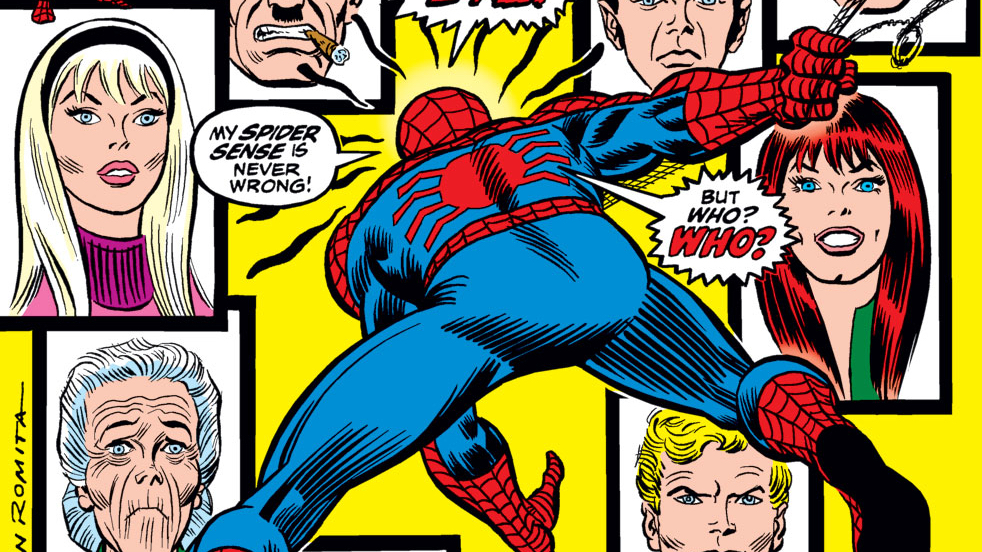The Night Gwen Stacy Died – The Aftermath 45 Years Later

In 1973, the night Gwen Stacy died shook the world and continues to live on 45 years later. Her death signified the end of innocence and the beginning of a darker time for comics. Amazing Spider-Man 121, more than any before it, ushered in a level of change that no one was prepared for.
As the story goes, Stan Lee was leaving the office for a number of days. When asked about killing off Gwen in his absence, he inadvertently Green lit the project.
Gwen’s death was a sign of the times. In the 1970’s comic book publishers were pushing the boundaries of what was acceptable. Drugs, racism, sex, and death were becoming more and more prevalent. On their way out were the innocent stories that the 1960’s conjured up. Much to the chagrin of those who opposed comics, readers all over were soaking it up like dry grass on a hot day.
Why do I bring this up?
Gwen Stacy’s death changed what it meant to be Gwen Stacy
Superheroes and comic book characters are things that we look up to. They pick us up when we are down and give us hope when we need it. Never has this been more real than it is right now.
While the death of characters is nothing new,
- Bucky Barnes
- Jason Todd
- Wolverine
- Jean Grey
- Green Arrow
- The Flash
- And even the almighty Superman
the death and resurrection of characters forces writers to walk a very fine line. If it happens too often, the characters become unbelievable because they constantly return from a place of what should be no return. If they don’t die enough, they become unbelievable as they somehow avoid the one thing that no one can avoid. It’s the literal definition of between a rock and a hard place.
For a long time, Gwen Stacy avoided the hard place. She was dead and the writers saw to it that she remained that way. She became the untouchable apple in the Garden of Eden. All for reasons that still aren’t completely understood today.
This didn’t mean that writers kept her comic book purity intact…the night that she slept with Norman Osborn….but instead meant that Gwen Stacy was too pure to defame. If a writer sought to ruin the reputation of Gwen Stacy, they often found themselves facing a severe backlash. Even today I find myself angry that J. Michael Straczynski and Joe Quesada created a story that saw her sleep with Spider-Man’s greatest enemy.
Gwen Stacy became practically untouchable and it was her death that did it.
The night Gwen Stacy died changed Spider-Man.
Spider-Man is the most relatable teenage character in the history of comics. He goes to school, has girl problems, balances friends, and keeps up with everything that teenagers are supposed to do.
Up until this point, Spider-Man could do no wrong. He was superior to every situation that he encountered and always had things under control. More than that, he always came out better off than he went in.
The night Gwen Stacy died changed that.
From her death forward, Spider-Man was no longer the prototypical good guy who always came out on top. Suddenly, he was as human as the people who read about his adventures. Here was a situation that he could not win. If he jumped to save her, he wouldn’t catch up in time. If he used his web shooter, well, that’s what makes the story so industry changing.
The “snap” written beside her head has never been addressed. Or at least not addressed enough for longtime fans to be satisfied. Because of this, Spider-Man, nor the Green Goblin has never acknowledged that it was the whiplash from his web that caused her death.
Amazing Spider-Man 121
Interestingly, I don’t believe that this book would have had the lasting impact if it was anyone else, save for Aunt May, that died. Gwen Stacy was and is loved. Much to the demise of Mary Jane, readers have repeated their love for Gwen over her. I don’t believe that had Mephisto asked Spider-Man to give up his marriage to Gwen Stacy, he would of.
Gwen Stacy was the light at the end of Spider-Man’s tunnel.
I thought about this issue for the better part of 10 years and still don’t have a good reason for why we love her so much. The only, semi-intelligent reason I’ve come up with is that her death felt similar to a break-up, without actually knowing something was wrong. We beg, plead, and create all the reasons that it shouldn’t have happened, but at the end of the day it does…and we are left to mourn.
So what is it? Why do so many have a love for Gwen Stacy that no other character in the history of comic books has?
Cheers,
Joel

